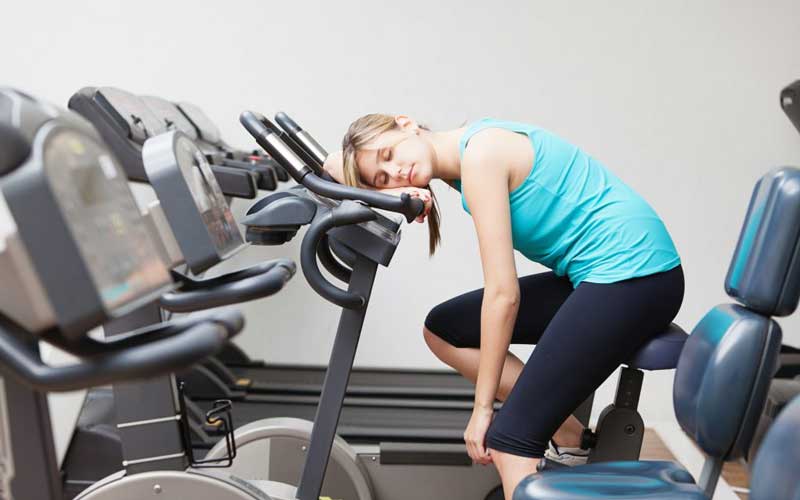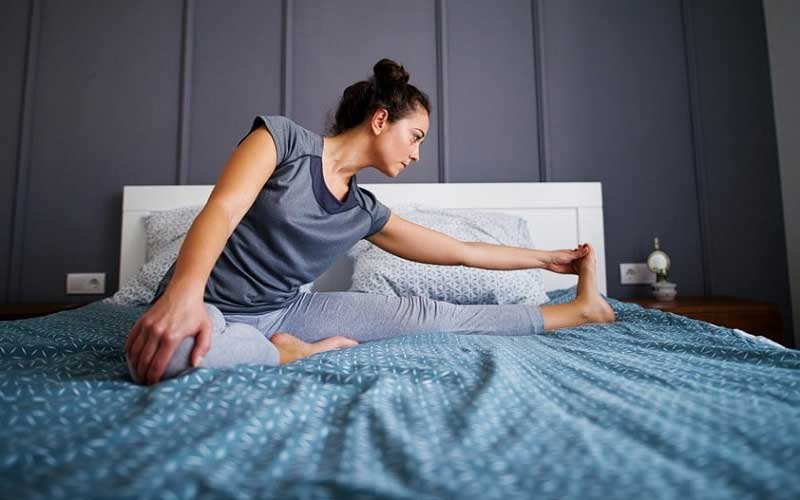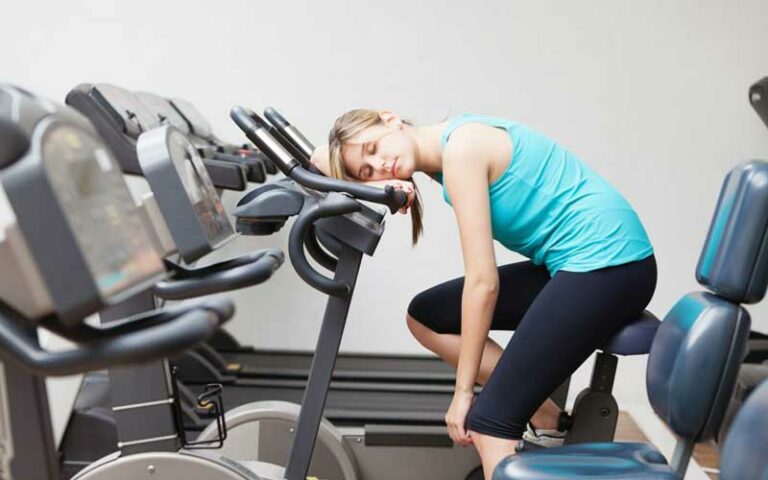The relationship between sleep and exercise has been studied for many years. Studies show that proper exercise can help you get an adequate amount of rest and alleviate sleep-related problems. It has been shown that insufficient or poor-quality sleep can lead to lower levels of physical activity.
Experts believe there is a relationship between sleep and exercise. Optimizing your exercise routine can help you sleep better and get a good amount of sleep, which may promote healthier physical activity levels during the day.
That’s why in today’s guide, we’ll discuss ‘How can exercise affect sleep?’ and what can you do to improve your rest while keeping your body healthy.
How can exercise affect sleep?

A good night’s sleep can be improved by physical activity and exercise during the day. It increases the amount of time you spend sleeping, as well as the amount of slow-wave sleep you get each night. Slow-wave sleep is the most restorative stage of sleep, which is also known as the deep sleep stage (REM). That’s when human growth hormones are released, your heart rate and breathing slow down, and your body repairs itself.
The effects of exercise on sleep can vary depending on your age and overall health. For example, adults who have a regular exercise routine will most likely enjoy better sleep efficiency, which means they spend more of their time in bed asleep and not tossing and turning awake every night.
Generally speaking, if you participate in regular physical activity, you will use more energy. Thus, you will be more prone to fall into a deep slumber with ease.
Does exercise help you sleep?

Exercise tires you out, and that’s the most obvious way it helps you sleep. Your sleep drive or need for sleep can be improved with physical activity. When you exercise, your body wants to recover, and rest is an excellent way of doing that.
Stress is often associated with sleep troubles (disorders), but with exercise, you get significant stress relief. Nearly half of the world’s adult population say they don’t sleep at night because of stress and anxiety. However, when you exercise, your brain releases endorphins. These chemicals boost your mood and reduce stress.
For example, aerobic exercise is a drug-free treatment for insomnia and other sleep disorders, which is often used to relieve sleep issues. A study found that a 12-week program of moderate-intensity aerobic exercise and resistance training reduced the severity of sleep disorders by 25%. Insomnia and sleep apnea can be alleviated by regular exercise, as well as daytime sleepiness, fatigue, and depression.
What are the benefits of exercising before sleep?

Most experts agree that exercise is an essential part of people’s sleep hygiene. Improvements in total sleep time, sleep quality and time spent falling asleep can be achieved by regular exercise.
There is still debate about the best time of day to exercise for optimal sleep, despite the benefits. It is difficult to draw clear conclusions from studies on the relationship between sleep and exercise when it comes down to the right timing for activity.
However, researchers are starting to understand the different advantages of exercising at certain times of day and all the benefits that come with it. For example, exercise can boost your sleep in several ways. They are the following:
Improve sleep quality
Exercise can contribute to sound and restful sleep. Deep sleep is the most restorative sleep phase, and physical activity increases the time spent in the deep sleep stage. The benefits of deep sleep include boosting immune function, support for cardiac health, and control of stress and anxiety.
Increase sleep amount
Increasing the duration of your nightly rest can be achieved by exercising, as well as improving the quality of sleep. It takes a lot of energy to be physically active, so you feel more tired and totally ready to rest at the end of the day. According to research, regular exercise that is part of a consistent routine can help boost sleep duration in addition to sleep quality.
Reduce stress & relieve anxiety
It is possible to reduce your stress levels by following a regular exercise routine. Sleeping restlessly during the night is one of the reasons for stress being a common cause of sleep problems. Even 5 minutes of exercise a day can get rid of anxiety and other mood disorders.
Mind-body exercises like yoga can help quiet the parasympathetic nervous system, which can help you relax and fall into slumber. Also, it has been shown that mind-body practices such as yoga and stretching can help to lower cortisol levels and reduce blood pressure.
Help with insomnia & other sleep disorders
Scientific evidence shows that exercise can be an effective therapy for insomnia and other sleep disorders. Studies suggest that aerobic exercise may be particularly effective in helping reduce insomnia symptoms.
According to research, the benefits of exercise will kick in right away for people with insomnia. Generally speaking, exercise can help reduce the severity of multiple sleep disorders, and aerobics might be particularly effective in reducing insomnia symptoms.
What kind of exercise is best before bedtime?
Not all exercises have the same effect on your rest and its quality, meaning that if you want to work out in the evening, you should choose your activity wisely. Also, it’s a good idea to consider the timing of your exercise.
Light to moderate-intensity activity is the best way to exercise if you are going to do it at night. This level of activity can help you fall asleep quicker and sleep better. You need to complete your workout at least an hour before bedtime. If you can, aim to finish even earlier. That way, your body will have time to wind down. Examples of light to moderate-intensity activities include stretching, yoga, walking, biking, etc.
It is advisable to avoid strenuous workouts in the evening. Strenuous physical activity can make it hard to sleep, as it stimulates your nervous system and raises your heart rate. Examples of vigorous-intensity exercise may include running, jumping rope, high-intensity interval training, heavy weightlifting or competitive cycling.
Bottom line
Often working out before bedtime is usually discouraged. We were thought that exercising later in the day might make it harder for us to fall asleep. However, studies show that moderate-intensity exercise won’t affect your sleep negatively if you do it at least an hour before the night begins.
A negative effect on sleep may be caused by strenuous physical activity closer to your bedtime. Lifting heavy weights and high-intensity interval training are included in this type of workout. With that said, remember that everyone is different. What works best for you might not do the same for someone else.
What’s most important is that you exercise regularly, whenever that may be. Now it’s our turn to hear from you if any questions regarding the subject were left unanswered. If you want to share some information, we would gladly hear about it in the comments below.

